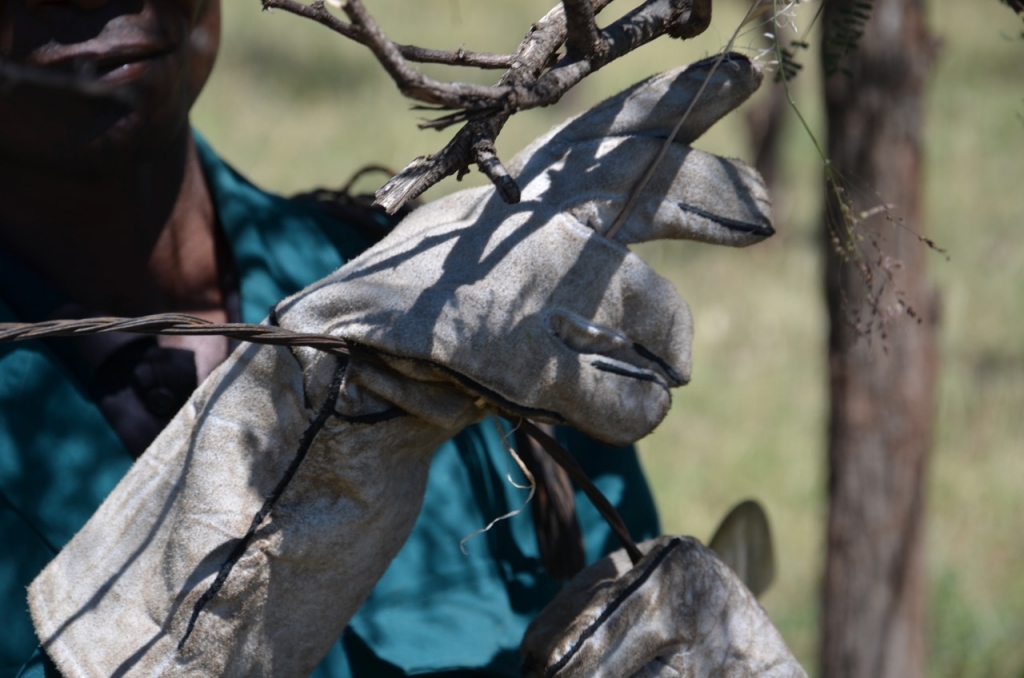Snaring targets species like the abundant wildebeest, to be sold as bush meat. But they are deadly traps for many other animals and some that are not even targetted, like predators or elephants.
In Serengeti, tour operators are now supporting Tanzania National Parks through Frankfurt Zoological Society, by funding the Serengeti De-Snaring Programme. With initial stakeholder funding, two anti-snaring teams have been set up and are already operating in Serengeti National Park.
The teams consist of a retired TANAPA ranger as team leader. An active TANAPA ranger is with each group to provide security. The team members have been recruited from villages in the Serengeti ecosystem, in an effort to target ex-poachers and use their experience to fight snaring. The teams cooperate closely with the Serengeti National Park authorities and go out to the field to collect snares before they do harm.
The operations have already been successful at a very early stage. To expand the programme and to cover larger areas in Serengeti, the programme seeks the support of tour operators in particular who rely on the wildlife and the intact ecosystem as the basis of tourism in the area. The initiative can demonstrate how collaborative effort can help to conserve Tanzania’s wildlife heritage.
Poaching remains a major challenge to conservation in Tanzania.
